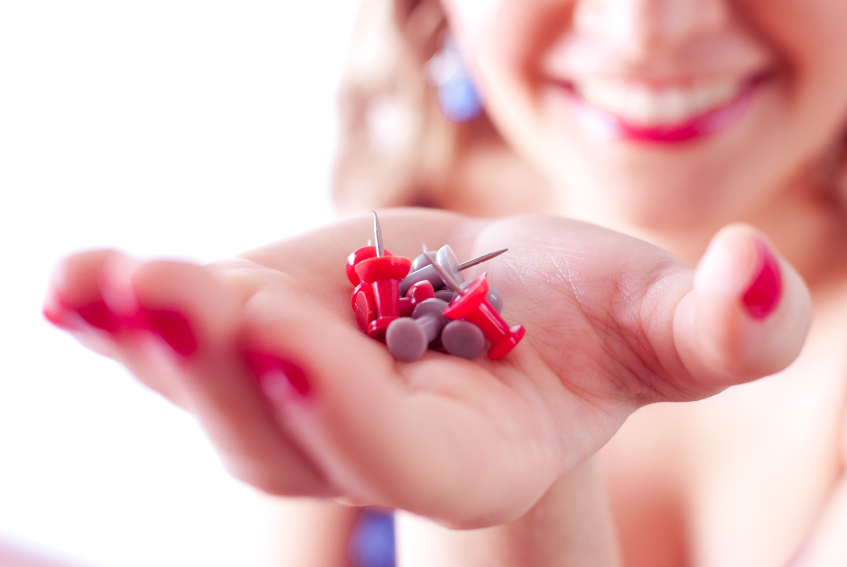
ouch
Since the start-up hit the internet in 2010, digital photo collection Pinterest has become an unparalelled hub of ideas and exchanges. It’s also a killer past-time, joining the ranks of social media giants like Facebook and Twitter, and can be counted on for its mind-numbing clickability and endless distraction. As of February 2013, Reuters and ComScore put Pinterest at 48.7 million users. Though our cousins across the pond are reported to have more balanced usage among genders, in the U.S. over 80% of pinners are ladies. And while somehow we manage to keep the collective cattiness and digital pillow fights to a minimum, Pinterest’s lady-dominated domain does present an interesting dilemma that it doesn’t seem society attaches to men: the strife of unrealistic ideals.
It’s the more “delicate” sex that has had to rally together to shame our media regarding the over-sexed and under-fed images that our teen (and pre-teen) girls admire. I don’t know what young men look at on the web and in magazines, but I surmise it doesn’t have a lot to do with their own bodies. That’s not to say that they don’t have insecurities, but Barbies needed remodeling because the psyches of impressionable young girls will them to wither away in hopes of a twenty-five inch waist (Barbie started at an appalling nineteen) later in life. We don’t often hear about desperate dudes wrecking their health and sanity because they want the broad shoulders and strong calves that their action figures were molded with.
Pinterest pits a bounty of healthy recipes and exercise tips against a perpetual stream of decadent baked goods and rich recipes with bacon and/or cheese as their main ingredients. It’s also host to thousands of unattainable, airbrushed images of models. Thrown in the midst are pinners succumbing to the “thinspo” trend. So much so that Pinterest was forced to crack down on pro-anorexia/thinspo pins.
Even the most future-forward and focused of us can come down with a touch of wedding fever and baby craziness thanks to the frantic and incessant nesting of our peers. It’s not that Pinterest isn’t a fair cross-section of the web and even the world offline, in fact it’s not too different from most woman’s magazines. The problem is that the storm of constant comparison and ideals, about half-honorable and half-idiotic, is so concentrated.
Does Pinterest sting sometimes for you too? Why are women so susceptible to struggling for self-improvement? —Casandra Armour
















